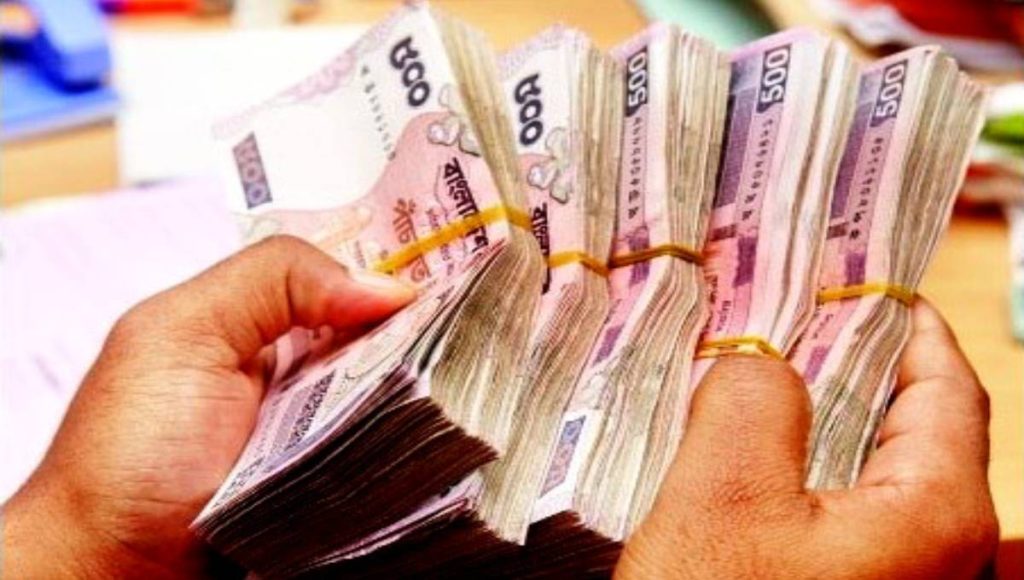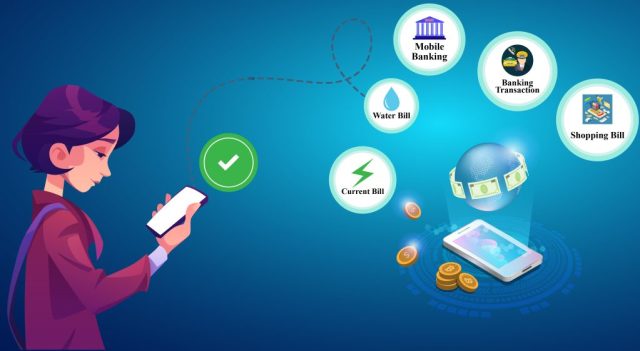With the introduction of new products, consumers are becoming more and more dependent on digital transactions. In Bangladesh, Uber, Pathao, and CNG fares are being paid through mobile phones. Even shops in alleys outside the capital are now being billed through services like bKash, Rocket, and SureCash. This is adding a new dimension to digital transactions. But the question may arise either people prefer digital transaction or cash transaction. So, the article is about Digital vs. Cash Transaction in Bangladesh.
Now, debit and credit cards and mobile banking are being used for small and big purchases. In addition, vendors and service providers use Point of Sales (POS) to receive money. Money is also being taken through mobile banking in the case of big and small businesses. Also, money is being transacted at home through internet banking or apps.
Data on Digital Transaction:
Thus, digital transactions of around Tk 1,600 crore are being done every day. Of this, sellers and service providers are accepting Tk 1,100 crore as the customer’s purchase bill. The remaining Tk 600 crore is transacted through apps or internet banking services. As a result, debit and credit cards, mobile banking, and internet banking have reduced the use of cash. Through this, Bangladesh is moving forward to become a cashless society. Although it has been a decade since these services were launched in Bangladesh, digital transactions have reached new levels in 2020 and 2021, mainly due to the COVID-19 pandemic. For example, all the various social security benefits provided by the government are now disbursed through mobile banking services.
According to industry sources, 270,000 small and large enterprises and shops across the country are now receiving money through development. And there are 31,000 such merchants in cash. Rocket also has a few thousand merchants. And the banks have installed 93,062 POS in different types of small and big businesses. Besides, many organizations are also accepting money through QR codes. Card money is being taken through this. Apart from this, the bank has introduced more or less internet banking facilities. Apart from this, paying gas-electricity and water bills and sending money to someone has become fully digitalized.
Available Offer:
Banks are now offering internet banking to their customers. For this, they have launched their apps, like, City Bank’s Citytouch, Eastern Bank Limited’s (EBL) Sky Banking, Dhaka Bank’s Go, Dutch-Bangla’s Nexus Pay, BRAC Bank’s Astha, and Jamuna Bank’s Just Pay are now very popular.
So what about Cash Transactions! Is it declining?
With the advent of modern technology in the payment system, money is instantly transferred. However, even after the number of inventions of digital transactions, cash transactions are not decreasing. On the contrary, cash transactions are increasing in the country every year.
If a particular bank deposits or withdraws more than Tk. 10 lakh per day, it must report to the Bangladesh Financial Intelligence Unit (BFIU). The country’s financial intelligence agency considers such transactions part of ‘cash transactions’. According to the company, in the 2016-17 financial years, the country’s banking sector had a cash transaction of 4 lakh 6 thousand 409 crores. The number of cash transactions in the banking sector exceeded Tk. 14.43 lakh crore in 2020-21. As a result, cash transactions in the banking sector have increased by more than 209 percent.
The BFIU has expressed its concern over the growing number of cash transactions. The agency’s observation is that people resort to cash transactions to keep the source and destination of the money earned secret. According to BFIU’s annual report for 2020-21, the country’s banking sector is much more digitized. The government has also increased mobile financial services and other digital payment systems. Yet, even after that, cash transactions are increasing every year.
Bankers say that a large portion of the cash transactions through banks is money earned through bribery and corruption. In addition, most traders have become accustomed to cash transactions to evade the government’s VAT tax. For this reason, cash transactions are not going to be reduced even after trying.

Data on Cash Transaction:
According to BFIU, in the financial year 2019-20, there was 81,41,621 taka cash transactions in the banks. The amount of money transacted is 11, 71, 929 taka. In the last financial year, the number of cash transactions and the amount of money in the banks have increased. In 2020-21, only 16 percent of cash transactions were at the individual level. The remaining 72 percent of transactions were institutional.
The Dhaka division accounts for 51 percent of the total cash transactions in the country’s banking sector. According to BFIU data, in the financial year 2020-21, the cash transaction in the Dhaka division was 8 lakh 36 thousand 353 crore taka. 2 lakh 2 thousand 136 crore taka has been transacted in the Chittagong division. Apart from this, 6 percent of cash transactions were made in Khulna and Barisal, 6 percent in Rajshahi, 6 percent in Rangpur, 4 percent in Mymensingh, and 2 percent in Sylhet.
Investigation Revealed!
BFIU reviewed that cash transactions are highest in the border districts of the country. Due to illegal smuggling and the drug and arms trade, cash transactions are rising in the border districts. Jessore had the highest number of cash transactions among the border districts in FY 2020-21. The western community of the country had a cash transaction of Tk 26,551 crore in the last financial year.
According to several bank officials in Jessore, many cash transactions took place around the trading business in Jessore. Traders have become accustomed to cash transactions to evade VAT. It is impossible to transact with them by check or other means, even after trying. However, due to Benapole being a major route for illegal smuggling along the border, including land port, cash flow is high in Jessore.



















